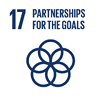The UNU-WIDER project on Reforming the International Financial Architecture aims to address significant inequities in the global financial system that affect economic growth and sustainable development, particularly in low-income and Global South countries. This project is rooted in the challenges these countries face, such as high levels of debt and limited fiscal space for investing in critical public goods like education and health, which are essential for achieving the Sustainable Development Goals (SDGs). The project's goal is to contribute to the creation of a fairer, more equitable financial system that supports the unique needs and ambitions of the Global South, fostering conditions that allow these nations to pursue sustainable, inclusive economic growth.
The project includes a series of planned activities leading to the formulation of the Helsinki Statement. This statement will outline actionable policy recommendations for reforming global monetary and financial systems. This includes gathering scholars and policymakers at conferences, organizing high-level discussions, and producing detailed reports and policy notes that explore different aspects of financial reform from the perspective of developing countries. These efforts aim to influence global economic governance and ensure that reforms consider the voices and concerns of the Global South. Ultimately, the project seeks to make the international financial architecture a level playing field that supports long-term, sustainable development financing.
Background
The International Financial Architecture (IFA) refers to the global framework of legal agreements, institutions, and both formal and informal economic practices that together govern international financial relations and global economic governance. This architecture, which includes the rules and institutions that facilitate in investment, revenue mobilization, and financial flows, has been increasingly criticized for not evolving in line with the economic realities of the Global South, resulting in persistent inequalities and restricted economic growth in these regions.
The UNU-WIDER project Reforming the International Financial Architecture addresses a key policy demand by Global South countries for a practical and politically feasible set of solutions that can make the global financial and economic governance arrangements a level playing field for developing countries and, in particular, the Least Developed Countries (LDCs).
Key questions
- What are the solutions for the current debt distress situation of Global South countries, which are likely to win the support of private creditors and other key lenders such as China?
- What set of reforms are necessary to improve the governance of the public international financial institutions, including the multilateral development banks?
- What specific measures do Global South countries need to take to increase domestic revenue mobilization, and how can the global tax architecture be reformed for inclusive and sustainable economic development?
Watch this space
All working papers, host project publications, events, briefs, information on media coverage, interviews, blog posts, opportunities, and any other information related to project will be made available on this webpage.

 Join the network
Join the network



